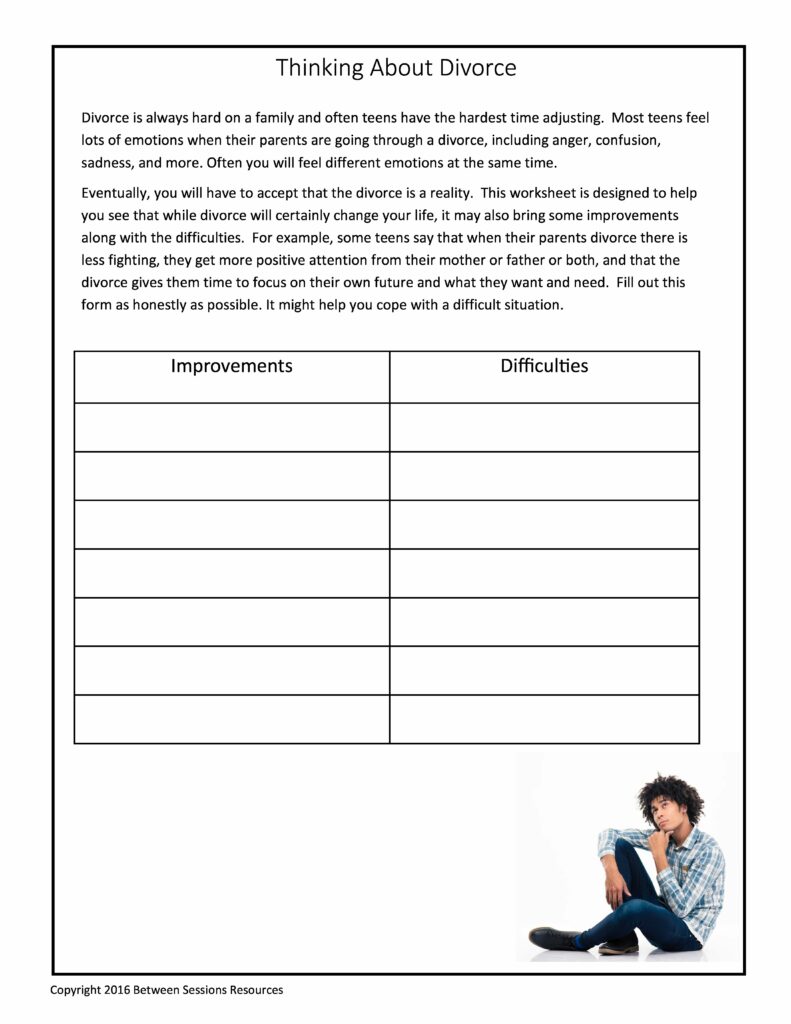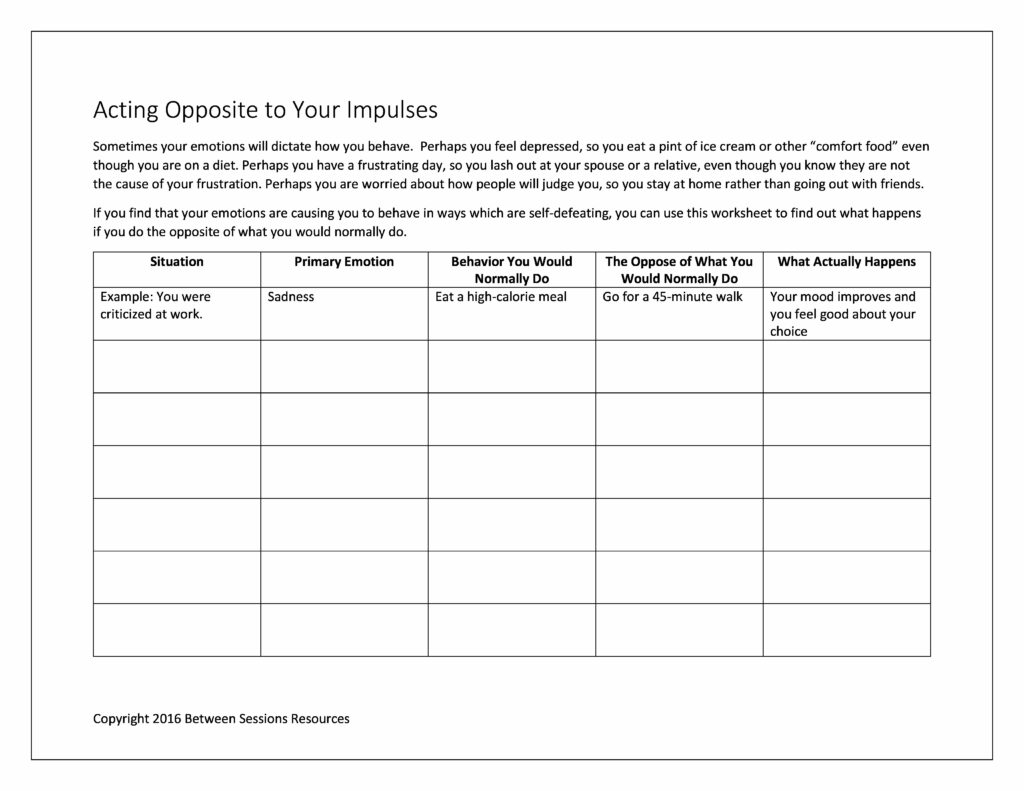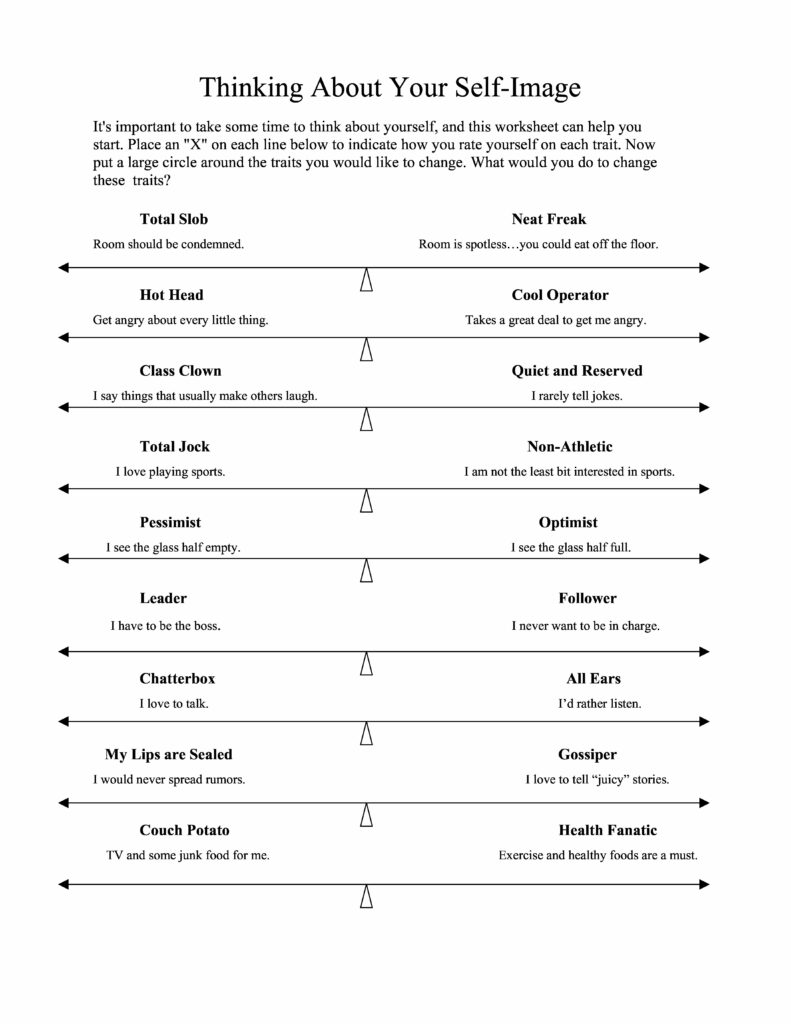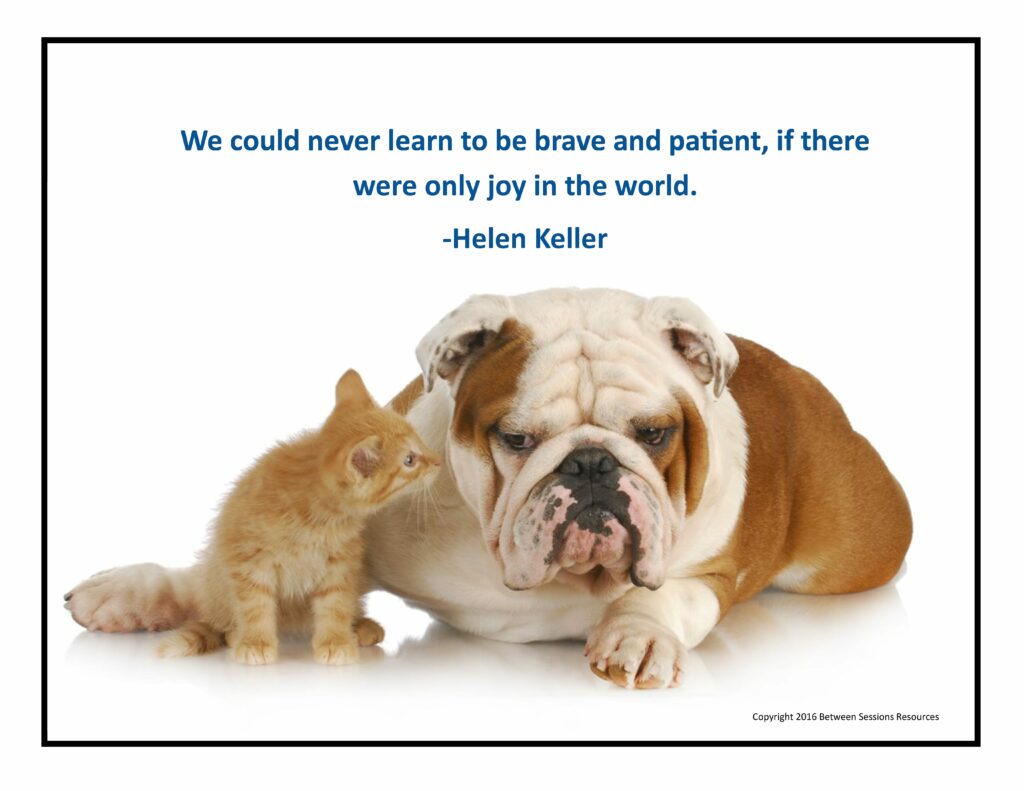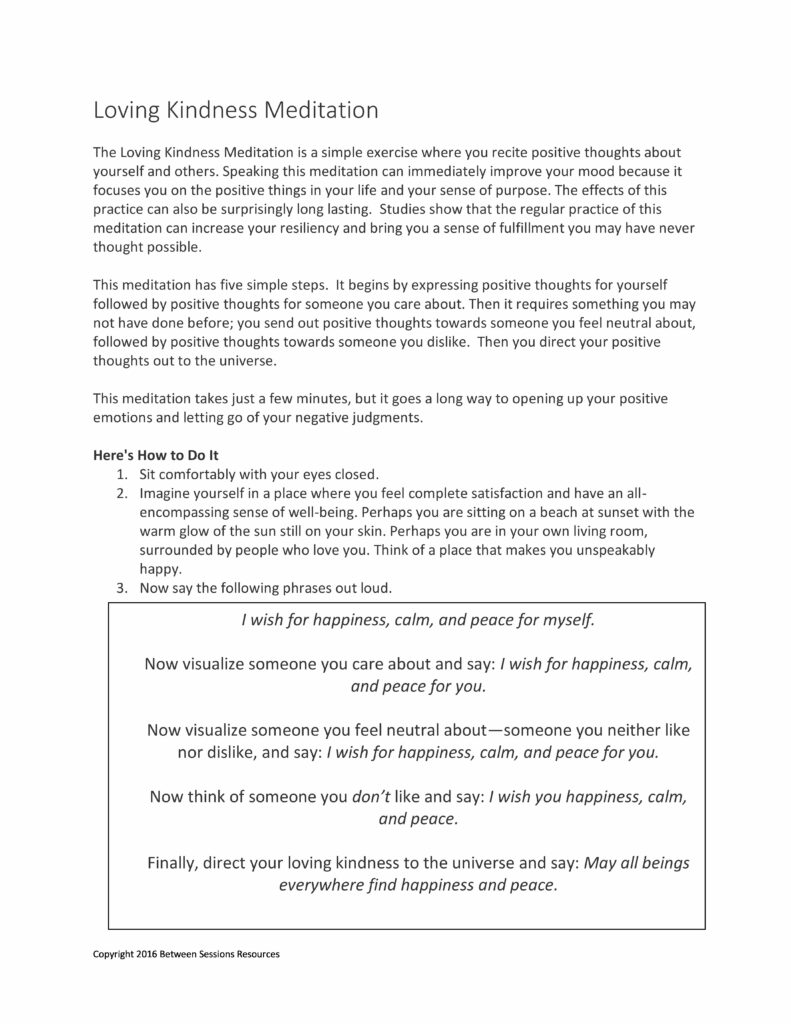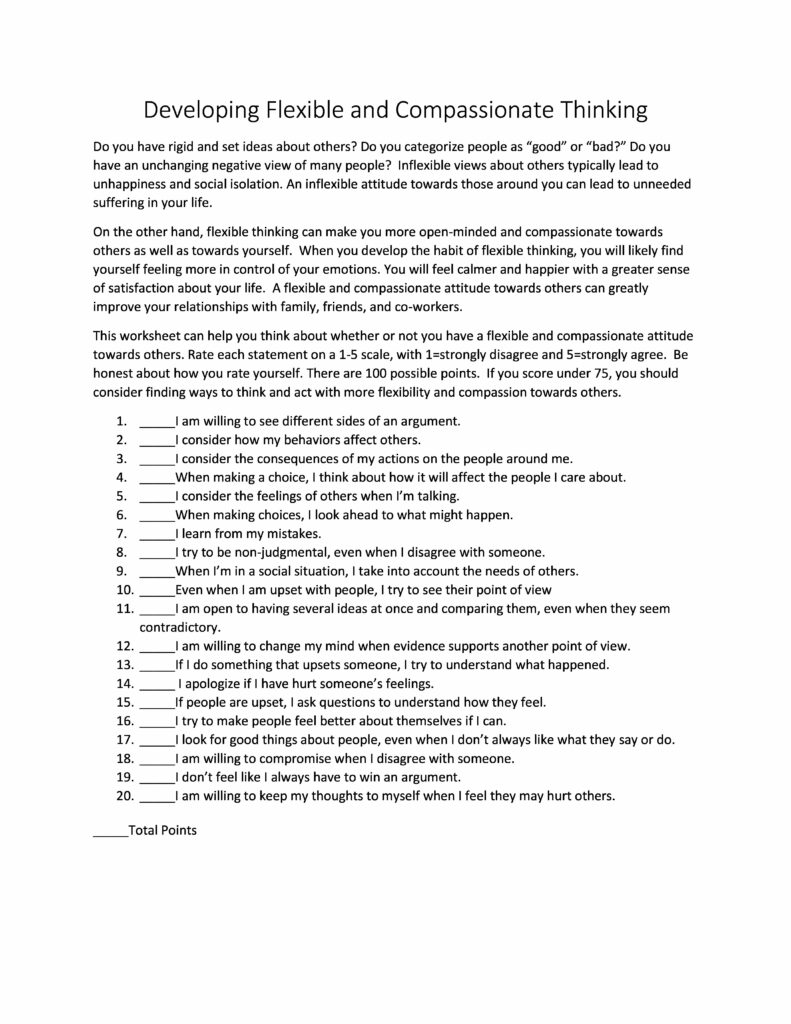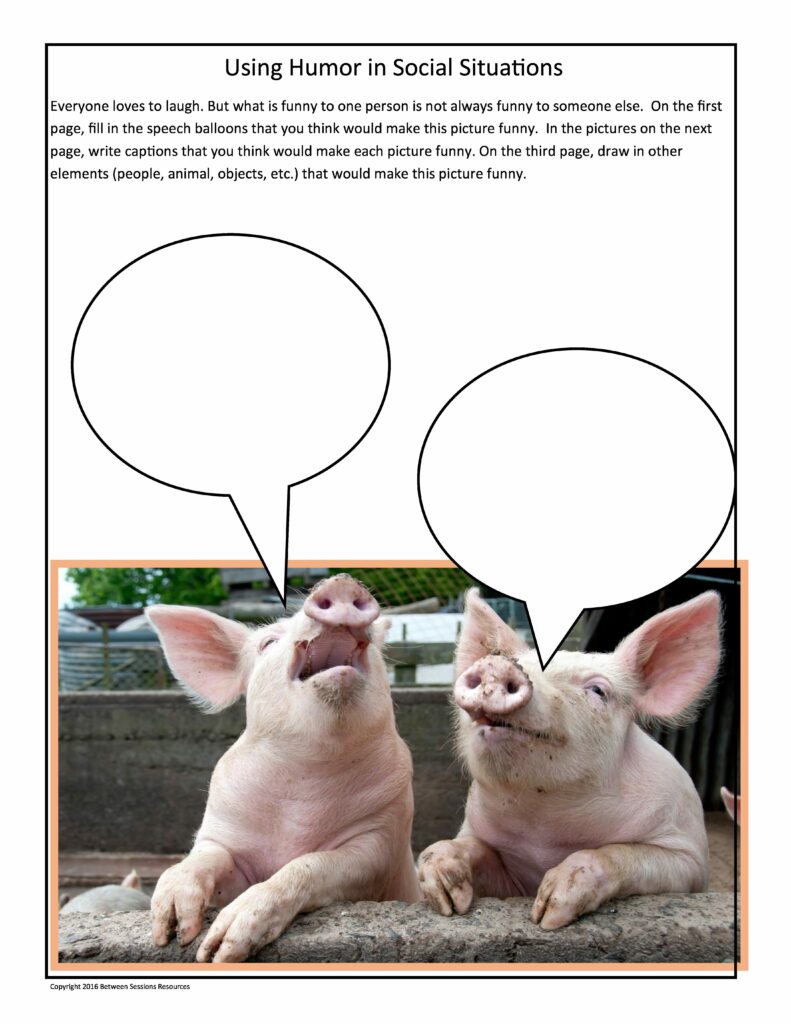This worksheet is intended to help teens think about the improvements that divorce can bring along with the difficulties. It can help teens accept the reality of the divorce. (1016)
If you find that your emotions are causing you to behave in ways which are self-defeating, you can use this worksheet to find out what happens if you do the opposite of what you would normally do. (DBT, CBT, Behavior Program, 1016)
This worksheet is designed to help teens start thinking about their character traits and behaviors and which ones they would like to change. (values, self-image)
This worksheet is designed to help people develop insight into their problem behaviors, including the positive as well as the negative consequences. The worksheet is intended to help people step back from just judging themselves negatively and to see how their problem behaviors play a functional role in their daily lives. This worksheet can be used in writing a CBT oriented treatment plan. (CBT, DBT)
Learning to accept reality is an important part of living in the present. Distorting reality can lead to depression, anxiety, disappointment in your relationships and more. This worksheet has three parts to help people understand how they distort memories from their past, events in the present, and thoughts about their future. (DBT, CBT, Thought-Changing, 0916)
This mini-poster is a humorous reminder that life can be hard at times but we can learn to tolerate our difficulties. (DBT, emotional intelligence, 0616)
This worksheet is designed to teach people the technique of Loving Kindness Meditation. Research suggests that this simple meditation can have a long term effect on people’s happiness. (ACT, meditation, happiness, mindfulness, depression, 0616)
This worksheet is designed to help people consider how they think about others. It is designed to help people see that flexible and compassionate thinking can improve their relationships as well as their own self-image. The assessment asks them to rate 20 questions on a 5-point scale. (compassion, flexibility, relationships, DBT, 0516, CBT).
This worksheet is designed to help teenagers think and talk about using humor in social situations. PDF (social skills, Asperger Syndrome, conversation skills, bullying)
This worksheet is intended to help people make compromises rather than be stuck between two extreme positions. (DBT, CBT, problem-solving, 0216)

